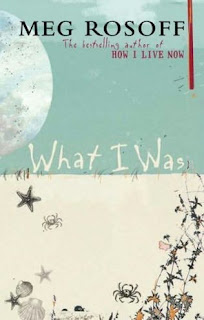
I love Terry Pratchett. I seldom read Fantasy as a genre but Pratchett is more satire and social commentary. He is also possibly one of the funniest and wittiest novelists I have ever read (although admittedly I haven't read P.G. Wodehouse as yet). It really is difficult to sum up the genius of Pratchett and do justice to his satirical mastery of humour. Over the years I have read all of the Guards novels (one of the Discworld arcs), the younger Discworld series, and a few other random ones here and there. However this year I decided to begin reading my boyfriend's copies (above) in chronological order and in doing so I reached the first Death-related novel,
Mort, the fourth novel of the series. It is now possible that Death has pipped Sam Vimes (head of the Watch) to be my favourite Discworld character although my boyfriend assures me that I will become attached to Death of Rats (also known as the Grim Squeaker) who appears in later novels, in due course.
Death is the only character to appear in each and every Discworld novel; the Orangutan librarian of Unseen University cameos in a fair amount, as does Lord Vetinari, the Patrician of Ankh-Morpok, and other characters, but Death is the only one who is guaranteed a role -as he is in everyone's life- however brief an appearance it may be. Death speaks in CAPS (outwith quotation marks as his words are inherently sensed rather than heard) and has an exceptionally dry wit; in
Mort he hires an apprentice named Mort, the eponymous hero.
"THANK YOU, BOY, said the skull. WHAT IS YOUR NAME?
'Uh,' said Mort. 'Mortimer ... sir. They call me Mort.'
WHAT A COINCIDENCE, said the skull."
"It is a fact that although the Death of the Discworld is, in his own words, an ANTHROPOMORPHIC PERSONIFICATION, he long ago gave up using the traditional skeletal horses, because of the bother of having to stop all the time to wire bits back on."
Skeletal with pin-pricks of blue fire as eyes, deep in the sockets, his fully-fleshed horse is named Binky, and he has a soft spot for cats (Death, not Binky). The anthropomorphic personification of death draws upon symbolic representations within culture from the Grim Reaper and Father Time (with Azrael appearing in the joint novel by Terry Pratchett and Neil Gaiman,
Good Omens) to Greek myth. Creating Death, a fate so feared, into a lovable and highly amusing character is no mean feat; I really think that Pratchett has made Death his own. Markus Zusak failed in my opinion with death as his narrator in
The Book Thief; I was left feeling as if the effect was gimmicky and I haven't read
The Sandman to comment upon Neil Gaiman's personification ... do you recommend any other successful literary characterisations of Death? I think that Pratchett's monopoly on the character and his extraordinary achievement is due to his Death being a parody of other representations and because, ultimately, he is FUN; although, granted, Death doesn't himself quite grasp the concept of fun.
WE ARE HAVING FUN?
'I thought I was,' said his lordship uncertainly. The voice by his ear was vaguely worrying him; it appeared to be arriving directly into his brain.
WHAT IS FUN?
'This is!'
TO KICK VIGOROUSLY IS FUN?
'Well, part of the fun. Kick!'
TO HEAR LOUD MUSIC IN HOT ROOMS IS FUN?
'Possibly.'
HOW IS THIS FUN MANIFEST?
The above quote is taken from a party scene where partaking is the Conga - how can you not see the genius in that? Death is so funny in this section that I found it difficult to stop there and could have easily quoted a few more lines of dialogue as it is a hilarious exchange.

Upon hiring Mort, Death takes a holiday; intrigued by humanity he travels to Ankh-Morpok to explore human experience and hilarity ensues. Mort, in turn, gradually loses his human traits and becomes more like Death, complete with speaking in capital letters, which he becomes conscious of and other characters comment upon.
"Mort laughed mirthlessly. THAT WON'T BE NECESSARY.
'I wish you'd stop talking like that.'"
Pratchett is insightful and highly observant of the nature of humanity anyway; his acute awareness of the foibles of people is something that makes the Discworld one of the best rendered literary universes. I immediately wanted to read Death's next novel-length outing (as opposed to a cameo),
Reaper Man, but I am sticking to my project of reading them chronologically.
I should also comment upon Pratchett's lack of chapter breaks, as I have seen this mentioned often in other reviews. The majority of the
Discworld novels are written in continous prose but for someone who usually prefers relatively short chapters to read for a sense of achievement, I wouldn't say that Pratchett's lack of them concerns me (on the other hand, I have read books where I have been irritated by fifty page long chapters) as I have difficulty putting them down anyway without stressing out about the lack of an obvious stopping point.
This is my fantasy book chosen for Carl's Once Upon a Time challenge.






























